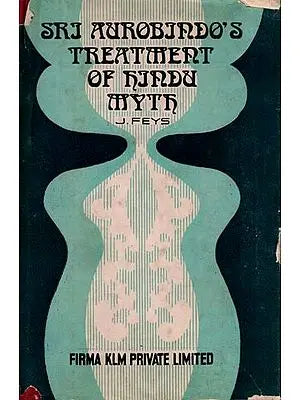Sri Aurobindo's Treatment of Hindu Myth By Jan Feys
Sri Aurobindo's Treatment of Hindu Myth By Jan Feys
Couldn't load pickup availability
Book Description
Preface
This essay is based on a lecture delivered at Sri Aurobindo Bhavan, Shakespeare Sarani, Calcutta, on December 7, 1980. It is now being published by Firma KLM Private Limited, Calcutta, with the kind permission of Sri Manik Mitra, secretary of the Bhavan and editor of Srinvantu.
Discussing myth in relation to Sri Aurobindo may seem surprising. His multifaceted personality has been celebrated in many ways: as a charismatic leader of the Nationalist Movement, a prominent author in Indo-Anglian literature, and even as a philosopher—though he himself rejected that title. Above all, he considered himself a yogi, recognizing this identity as he discovered his true self.
Given this, one might wonder what role myth plays in his work. However, there is an important aspect often overlooked: Sri Aurobindo was a modern reinterpreter of traditional Hindu culture. He not only wrote Foundations of Indian Culture, offering his own interpretation of India’s heritage, but also produced extensive commentaries on a vast range of Sanskrit literature, including the Vedic hymns, Upanishads, the Mahabharata, and the Bhagavad Gita.
Consequently, it was inevitable for Sri Aurobindo to engage with myth, as it is a crucial element of the culture he sought to revitalize. In contrast to Swami Dayananda Sarasvati, who dismissed post-Vedic mythology as superstition, Sri Aurobindo embraced the entirety of Hindu myth, while also favoring its earlier Vedic expressions.
Furthermore, Sri Aurobindo’s exploration of myth cannot be separated from his other literary pursuits. Throughout his diverse career—as a journalist, playwright, epic poet, cultural theorist, mentor to aspiring sadhakas, and author of extensive yogic texts—he consistently engaged with myth. This might come as a surprise, but it reveals yet another dimension of his work: he became an interpreter of Hindu myth, revitalizing it through his creative reinterpretation. Sri Aurobindo breathed new life into these narratives, enriching their significance for contemporary readers.
Share


